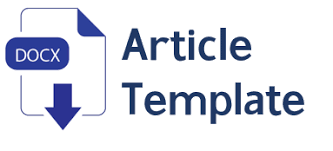Eksplorasi Faktor Pendorong Mahasiswa untuk Terlibat dalam Aktivitas Ekonomi Berbasis Platform Digital (Gig Economy)
DOI:
https://doi.org/10.59086/jam.v4i1.694Keywords:
perkembangan ilmu ekonomi, gig economy, mahasiswa, platform digital, motivasi kerjaAbstract
The advancement of digital technology has driven the development of economic science through the emergence of platform-based economies, commonly referred to as the gig economy, which serves as a new alternative in the world of work.. This phenomenon has increasingly attracted university students who seek flexibility, additional income, and non-traditional work experiences. This study aims to explore the factors that drive student engagement in digital platform-based economic activities. Employing a qualitative approach through in-depth interviews, data were collected from 15 students actively involved in various forms of gig work, such as ride-hailing services, freelance jobs, and product sales through digital platforms. The findings indicate that economic motivation, time flexibility, the development of digital skills, and social environment influence are the main factors driving student participation. Additionally, access to technology and the user-friendliness of platforms also play significant roles. These findings offer important implications for higher education institutions, digital platform providers, and policymakers in understanding the evolving dynamics of the labor market among the younger generation.
Downloads
References
Ajzen, I. (1991). The theory of planned behavior. Organizational Behavior and Human Decision Processes, 50(2), 179-211.
Bangsawan, G. (2023). Kebijakan Akselerasi Transformasi Digital di Indonesia: Peluang dan Tantangan untuk Pengembangan Ekonomi Kreatif. Jurnal Studi Kebijakan Publik, 2(1), 27-40.
Davis, F. D. (1989). Technology acceptance model: TAM. Al-Suqri, MN, Al-Aufi, AS: Information Seeking Behavior and Technology Adoption, 205(219), 5.
Du, Y., Lin, H., Yang, S., & Xu, G. (2018, December). On The Protection of College Students' Rights and Interests in The “Gig Economy”. In 2018 2nd International Conference on Education Innovation and Social Science (ICEISS 2018) (pp. 408-411). Atlantis Press.
Firdasanti, A. Y., Khailany, A. D., Dzulkirom, N. A., Sitompul, T. M. P., & Savirani, A. (2021). Mahasiswa dan Gig Economy: Kerentanan Pekerja Lepas (Freelancer) di Kalangan Tenaga Kerja Terdidik. Jurnal PolGov, 3(1).
Goode, W. J. (1960). A theory of role strain. American sociological review, 483-496.
Gregory, K. (2022). The students are already (Gig) workers. Data Justice and the Right to the City, 211.
Lepanjuuri, K., Wishart, R., & Cornick, P. (2018). The characteristics of those in the gig economy.
Lynn, P., & Kaminska, O. (2012). Factors affecting measurement error in mobile phone interviews. In Telephone Surveys in Europe: Research and Practice (pp. 211-228). Berlin, Heidelberg: Springer Berlin Heidelberg.
Mehta, B. S. (2023). Changing nature of work and the gig economy: Theory and debate. FIIB Business Review, 12(3), 227-237.
Prestianawati, S. A., Fawwaz, M., & Teguh, A. L. J. (2023). Analisis determinan tenaga kerja yang bekerja pada gig economy. International Journal For Multidisciplinary Research, 5(4), 1-24.
Rasyidi, E., Abdillah, B., & Hawari, F. M. (2023). Measuring GIG Economy at Uin Sunan Ampel Surabaya: Typology, Characteristics, and Interests (Case Study of UIN Sunan Ampel Surabaya Students). Journal of Development Research, 7(2), 335-342.
Rojas, M., Méndez, A., & Watkins-Fassler, K. (2023). The hierarchy of needs empirical examination of Maslow’s theory and lessons for development. World Development, 165, 106185.
Roy, G., & Shrivastava, A. K. (2020). Future of gig economy: opportunities and challenges. Imi Konnect, 9(1), 14-27.
Ryan, R. M., & Deci, E. L. (2000). Self-determination theory and the facilitation of intrinsic motivation, social development, and well-being. American psychologist, 55(1), 68.
Surmiak, A. (2018). Confidentiality in qualitative research involving vulnerable participants: Researchers’ perspectives. Forum Qualitative Sozialforschung, 19(3).
Vallas, S., & Schor, J. B. (2020). What do platforms do? Understanding the gig economy. Annual review of sociology, 46(1), 273-294.
Zheng, Q., & Yang, W. (2020). The characteristics of the gig economy.
Zulfani, A. (2024). GIG Economy: UNTUNG ATAU RUGI?. Retrieved from: https://sites.unnes.ac.id/kimefe/2024/07/gig-economy-untung-atau rugi/#:~:text=Mengacu%
pada%20data%20yang%20diperoleh,juta%20jiwa%20pada%20Februari%202023.
Downloads
Published
How to Cite
Issue
Section
License
Copyright (c) 2025 Moh. Zaini, Siti Jamilatul Miladiyah, Abd. Salim

This work is licensed under a Creative Commons Attribution 4.0 International License.
This is an open-access journal. All works are published under the Creative Commons license CC-BY which means that all content is freely available at no charge to the user or his/her Institution. Users are allowed to read, download, copy, write, improve, and create derivative creation even for other lawful purposes, this license permits anyone to, as long as they cite and license the derivative creation under similar terms

This work is licensed under a Creative Commons Attribution 4.0 International License.
Most read articles by the same author(s)
- Abdullah, Logi Mulawarman, Dios Nugraha Putra, Seven Marganda Bako, Moh. Zaini, Pengaruh Corporate Social Responsibility (CSR) terhadap Loyalitas Konsumen , Balance : Jurnal Akuntansi dan Manajemen: Vol. 4 No. 1 (2025): April 2025


















